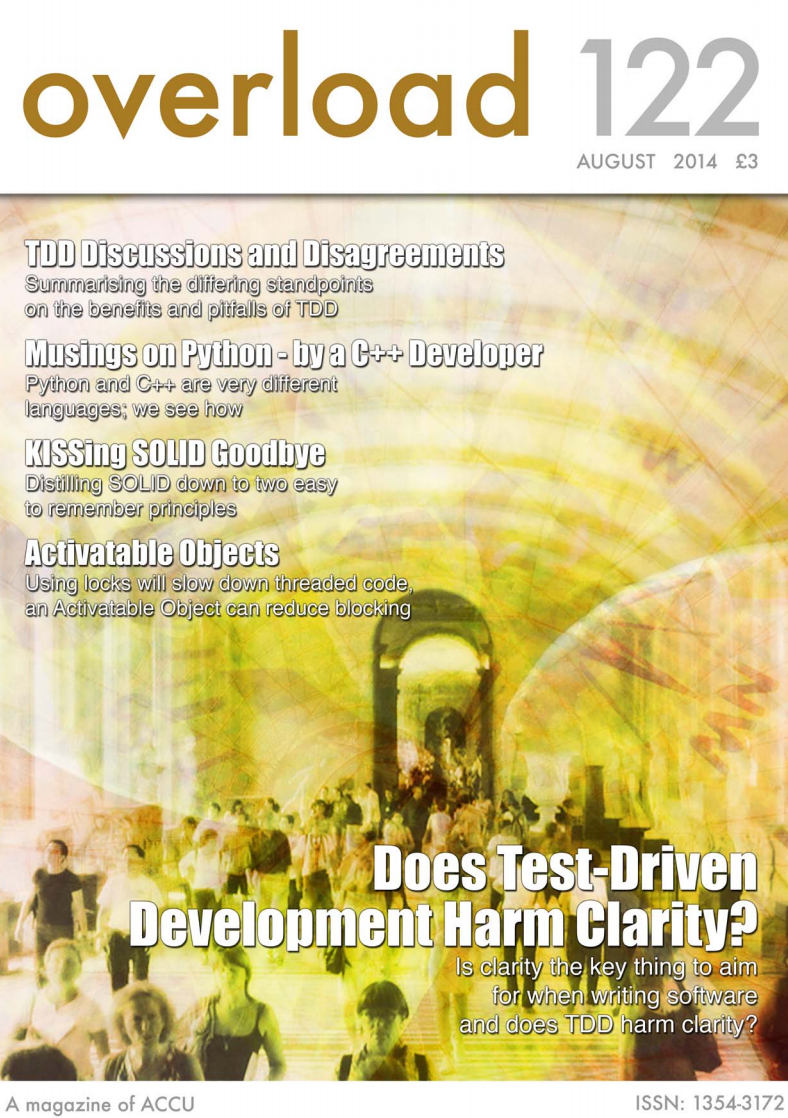Near-final version of Effective Modern C++ available -- Scott Meyers
Scott's long-awaited book on using C++11 and C++14 is nearing completion:
Near-Final Draft of Effective Modern C++ Now Available (plus TOC and sample Item)
by Scott Meyers
From the announcement:
Effective Modern C++ is moving closer and closer to reality. This post contains:
- Information about availability of an almost-final draft of the book.
- The current (and probably final) table of contents.
- A link to the I-hope-I-got-it-right-this-time version of my Item on
noexcept.
Note: Scott's session at CppCon ("Type Deduction and Why You Care") is based on the first chapter of Effective Modern C++.

 Overload 122 is now available. It contains the following C++-related articles, and more:
Overload 122 is now available. It contains the following C++-related articles, and more:
 Korban's C++11/14 feature overview book now has a Clang edition, in addition to VS2013 and GCC:
Korban's C++11/14 feature overview book now has a Clang edition, in addition to VS2013 and GCC: Recently on Kukuruku:
Recently on Kukuruku: